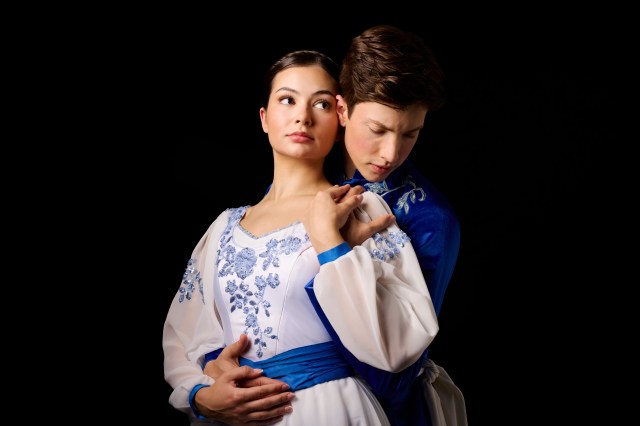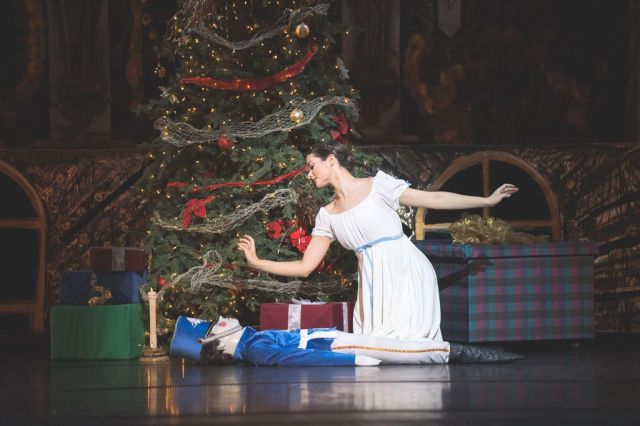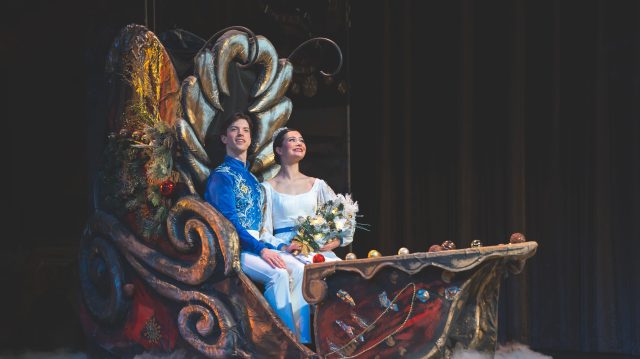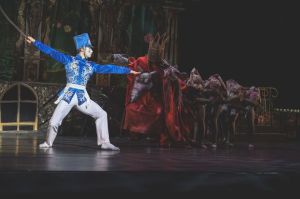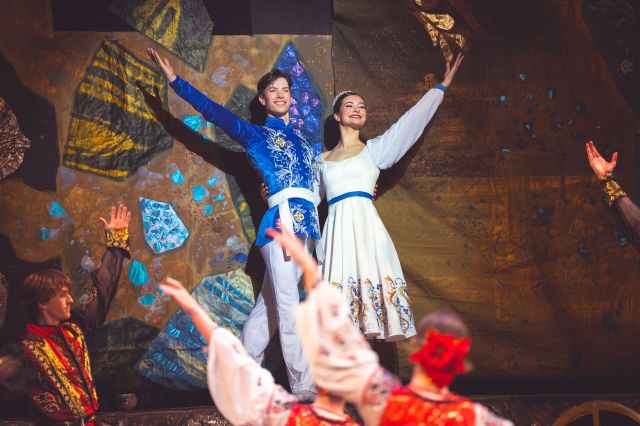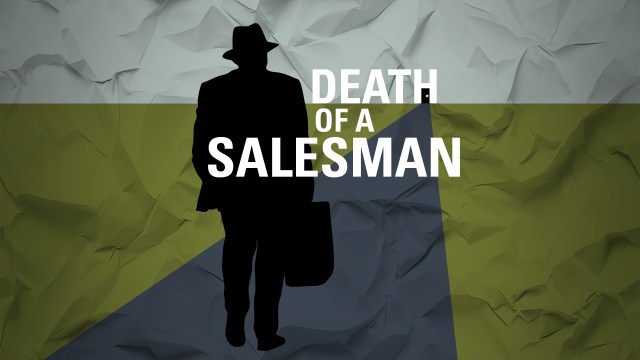
Death of a Salesman: graphic, Citadel Theatre.
By Liz Nicholls, 12thnight.ca
Sixty seasons ago, a worn-out travelling salesman feeling his mileage and dispossessed from the “smile and a shoe shine” world he’s always known arrived on the stage of a former Sally Ann citadel in downtown Edmonton.
To help support 12thnight.ca YEG theatre coverage, click here.
From the start — it premiered in 1949 — Arthur Miller’s Death of a Salesman had struck a chord with America, the tragedy of Willy Loman, an “ordinary” man, a man with an “ordinary” family.
The play was already celebrated (The New York Times reviewer of the day called it “tremendous … a fresh creation in a style of its own”). The Edmonton theatre, christened the Citadel, was new, an audacious experiment — by spirited lawyer-cum-real estate entrepreneur Joe Shoctor and friends — half a continent away from the theatrical strongholds in the east. And Death of a Salesman was part of the Citadel’s inaugural season. After Robert Glenn’s 1966 production, Willy Loman has returned at intervals to the Citadel stage. In 1984, James Whitmore was in Len Cariou’s production. In 2011, Tom Wood was Willy Loman in Bob Baker’s production.
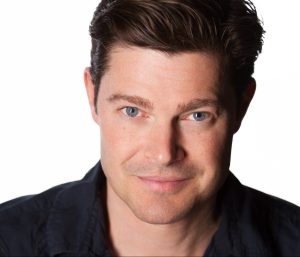
John Ullyatt, star of Death of a Salesman, Citadel Theatre. Photo supplied.
And on Thursday, in in a highly unusual kind of theatrical continuity, John Ullyatt, who played Willy’s troubled underachiever son Biff in that production 15 years ago, will be Willy Loman in the Citadel revival directed by Daryl Cloran.
“I was really nervous about doing it,” says Ullyatt, who’s thoughtful and funny, an inveterate re-thinker, chronically self-critical. Fresh from his fourth run exploring another iconic (the word doesn’t go amiss) character, Ebenezer Scrooge, in the Citadel’s A Christmas Carol, he says of Miller’s delusional salesman “I don’t feel old enough…. And yet I’m almost the right age, pretty close. It’s happening! (note of incredulity about the role). And as we work on it I’m feeling better and better about it almost every day. A great play, lots of twists and turns….
In the course of his four years with Christmas Carol, “each time out I’ve learned something new about it; I figure that’s my job,” says Ullyatt with a smile in his voice, “and otherwise I’d be bored.” With Death of a Salesman, “it’s an adventure trying to get inside of it as quickly as possible. Every day something else falls into place. It’s coming into focus, a whole portrait is coming in to focus….”
“It never stops being awesome, this job. I really love rehearsing! It’s hard but it’s … fun.” The word fun sounds odd, he thinks, and he reassesses for a second, and goes with it. “We’ve made ourselves a (rehearsal) room where we laugh. A lot. Which is alarming,” he laughs. “Shocking!”
The role has always attracted a range of great and distinctively different actors, Lee J Cobb, George C. Scott, Brian Dennehy, Dustin Hoffman, Philip Seymour Hoffman — and Ullyatt joins that line. And pretty much since it opened the play has been a magnet for cultural commentators who see in Willy Loman’s tragedy the implosion of the American Dream, with its hollow promises that hard work will be rewarded. Ullyatt has reservations about that narrow-casting of the play. “The American Dream is part of it, certainly. But it’s about a lot of things, and at the centre, it’s a story about a family. A father putting all his hopes into his son, and how he’s going to be fantastic, being popular, well-liked. And the kid just isn’t that person, to put it bluntly.”
“To me that’s more important…. I can’t play the American Dream.” He points to a Charlie Rose interview with Arthur Miller in which the playwright said he thought of Salesman as a family story.
From the moment, a year ago, that director Cloran began talking to him about the production, Ullyatt says he was struck by the brain-bending thought that “being Willy is pretty similar to being an actor, actually…. He’s a gig worker, a salesman (without a pension). He’s on his own. And something that resonated with me is that as we get older we become less desirable. We live in a very age-ist world.”
“The world is changing around him, and Willy hasn’t kept up with it.” Ullyatt empathizes, and pauses to reflect. “As I get older these are the things I’m thinking about. More about the future and what’s going to happen next….”
In conversation Ullyatt is always re-assessing. He proposes an unexpected link between playing Ebenezer Scrooge and Willy Loman. “I see both of these characters as immature; they didn’t grow up.” He laughs, “of course that may be coming from me.”
Ullyatt’s striking versatility as an actor has made him equally at home in raucous comedies, cabarets, musicals, way off-centre dark satires, new plays, repertoire classics. His history with the Freewill Shakespeare Festival, in roles ranging from Richard III and Iago to the clown Launce in Two Gentlemen of Verona, is revealing. And so is his extensive Citadel resumé, which includes most recently, a very funny turn as Bottom the stage-struck weaver who throws himself into the play-within-a-play in Cloran’s Midsummer Night’s Dream The 70s Musical.
In a long list of indie credits Ullyatt may be the only actor in history who’s played Coriolanus, an unsavoury boy scout, and a dung beetle (Edmonton Street Performers Festival). “I love playing characters,” says Ullyatt, a Montreal native and McGill grad who moved here in the 1990s to do a theatre degree at the U of A. “I think of myself as a character actor.” He has an aversion to be called a leading man (I’m guilty of this). “Too square. I hate it,” he says flatly.
And he feels he’s learning how to separate the character from himself, much to the relief, as he reports, of his actor/playwright/circus performer wife Annie Dugan. “I’m not leaving Willy here (at the theatre),” he says. “I’m going home with him. But maybe I’m getting better at differentiating myself from the character: a character! this is not me! …. It’s not affecting me the way it has in the past … (laughter) where it was detrimental to my personal life!”
Mind you, “here’s a funny thing,” Ullyatt says. “Willy talks to himself a lot, and goes off into a dream land — not flashbacks, that’s important. I’ve been catching myself talking to myself, especially when Annie’s not around…. I’m making myself laugh,” he says. “I’m OK with talking to myself — as long as not too many people overhear me.”
Meanwhile Ullyatt has been intrigued by the ample selection of articles in which writers wonder “what Willy Loman would have thought of Donald Trump,” and conclude that as a person who feels “marginalized, betrayed, hurt,” he’d be a Trump supporter. “That’s a very interesting portrait of American society now,” says Ullyatt.
Is Willy Loman a tragic figure? Yes, says Ullyatt, who points out that the salesman certainly doesn’t fit the classic definition, “someone on high who’s taken down.” But here’s another thought: “what happens in tragedy is having your dignity taken away from you. He’s hanging on to a veneer, that if a man is impressive and well liked there isn’t anything to worry about. That’s what does him in….” As Willy’s wife Linda (Nadien Chu) says, “I don’t say he’s a great man…. But he’s a human being, and a terrible thing is happening to him.”
Then Ullyatt is back en route to rehearsal. “I feel like I’m painting my picture from the outside, and slowly working my way inside.”
PREVIEW
Death of a Salesman
Theatre: Citadel Theatre
Written by: Arthur Miller
Directed by: Daryl Cloran
Starring: John Ullyatt, Nadien Chu, Nathan Kay, Alexander Ariate, Anthony Santiago, Tess Degenstein, Jeff Gladstone, Christina Nguyen, Andrew Wheeler, Tenaj Williams, Morgan Yamada
Running: through Feb. 15
Tickets: citadeltheatre.com, 780-425-1820

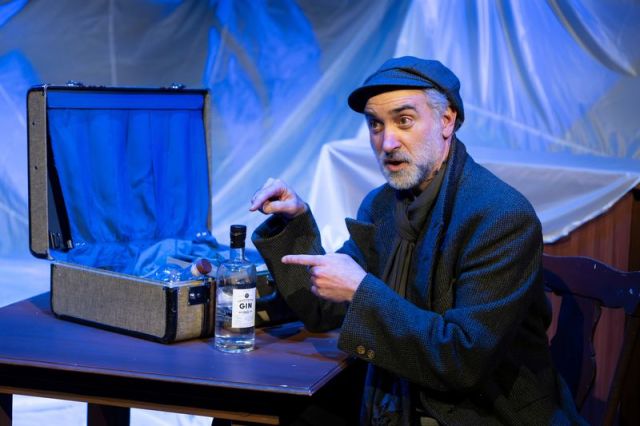
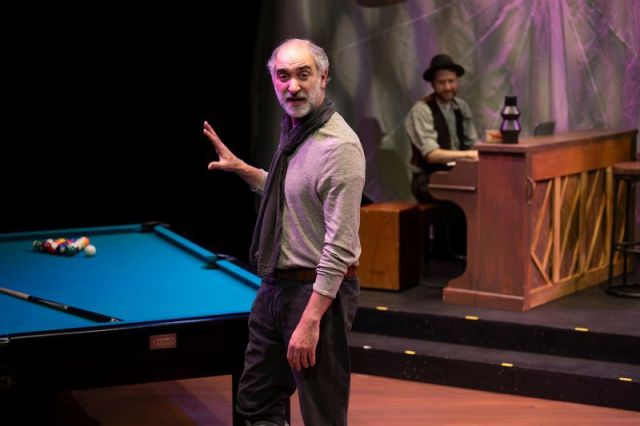
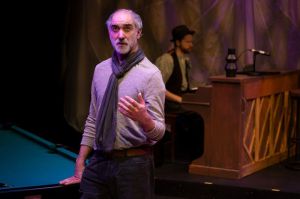


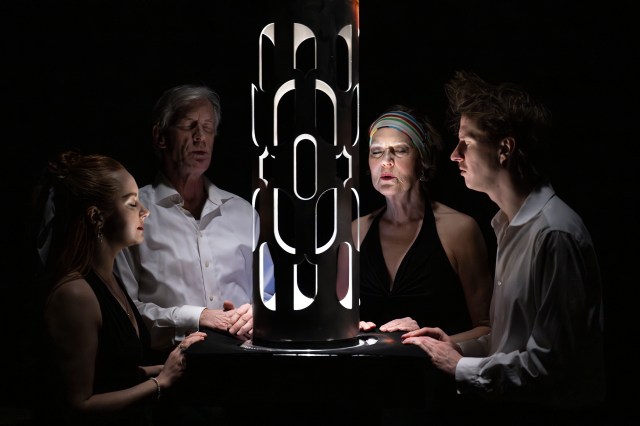
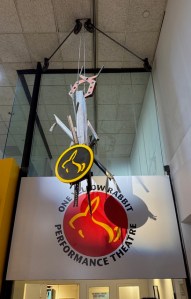
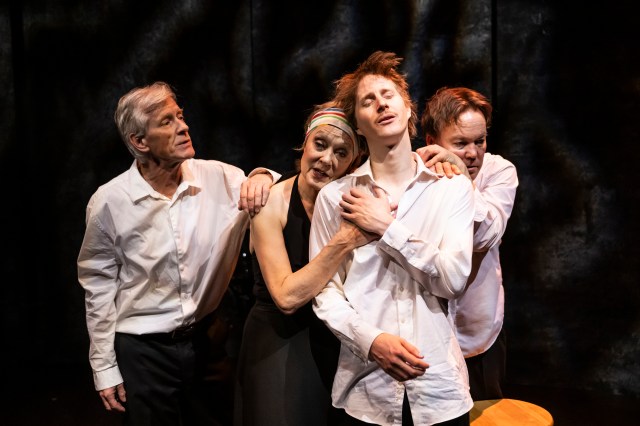
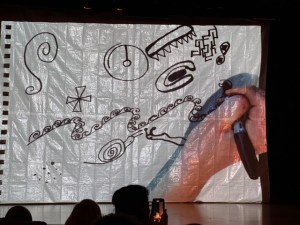
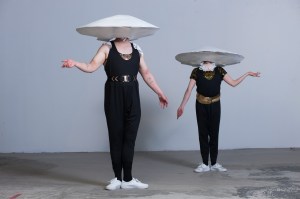
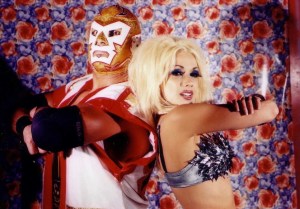




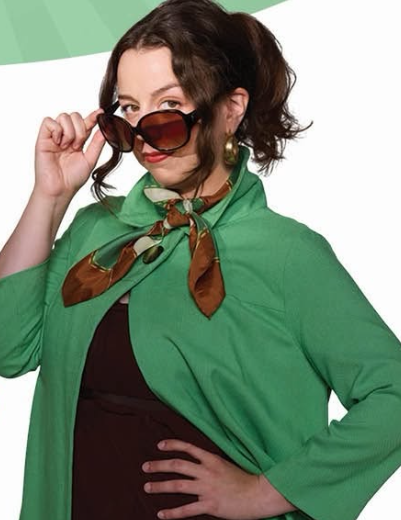
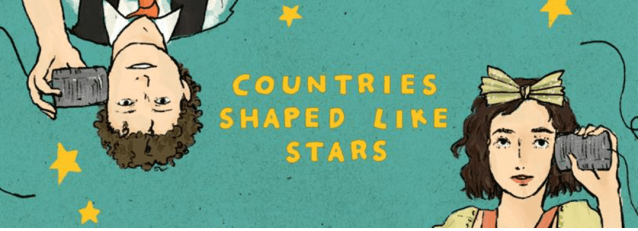 Countries Shaped Like Stars. Created by Emily Pearlman and Nicolas Di Gaetano of Ottawa’s Mi Casa Theatre, the oddball enchantment of this whimsical fairy tale cum musical love story between two people who live on neighbouring peninsulas have made it a hit at festivals across the country. It was at the Fringe here in 2013, and I loved it (it’s just one of those theatrical Fringe shows that land lightly and stay with you), for its imaginative use of simple props, for its music … and its way of unhinging words from their usual mooring as it takes us to a time when anticipation grew on trees. Murray Utas directs a new Fringe Theatre production starring Dayna Lea Hoffmann as dragonfruit salesperson Gwendolyn Magnificent and Michael Watt as Bartholomew Spectacular, purveyor of fish popsicles. It runs Feb. 17 to 28 at the Backstage Theatre. Tickets:
Countries Shaped Like Stars. Created by Emily Pearlman and Nicolas Di Gaetano of Ottawa’s Mi Casa Theatre, the oddball enchantment of this whimsical fairy tale cum musical love story between two people who live on neighbouring peninsulas have made it a hit at festivals across the country. It was at the Fringe here in 2013, and I loved it (it’s just one of those theatrical Fringe shows that land lightly and stay with you), for its imaginative use of simple props, for its music … and its way of unhinging words from their usual mooring as it takes us to a time when anticipation grew on trees. Murray Utas directs a new Fringe Theatre production starring Dayna Lea Hoffmann as dragonfruit salesperson Gwendolyn Magnificent and Michael Watt as Bartholomew Spectacular, purveyor of fish popsicles. It runs Feb. 17 to 28 at the Backstage Theatre. Tickets:  And speaking of mysteries, Shakespeare is back in the park, forsooth. BIG NEWS from the
And speaking of mysteries, Shakespeare is back in the park, forsooth. BIG NEWS from the 
 Everyone Is Doing Fine. Two art school friends land a job with a rich-guy hedge fund manager in this new comedy-drama by Calgary rising star James Odin Wade. Set at the treacherous, high-speed urban intersection of art, capitalism, sex, and ethics, the play was first seen in fledgling form at Workshop West’s 2023 Springboards Festival. The upcoming Workshop West premiere production (May 6 to 24) is directed by the company’s artistic producer Heather Inglis, who’s described it as “fast, smart, sexy, sophisticated.” Tickets:
Everyone Is Doing Fine. Two art school friends land a job with a rich-guy hedge fund manager in this new comedy-drama by Calgary rising star James Odin Wade. Set at the treacherous, high-speed urban intersection of art, capitalism, sex, and ethics, the play was first seen in fledgling form at Workshop West’s 2023 Springboards Festival. The upcoming Workshop West premiere production (May 6 to 24) is directed by the company’s artistic producer Heather Inglis, who’s described it as “fast, smart, sexy, sophisticated.” Tickets: 

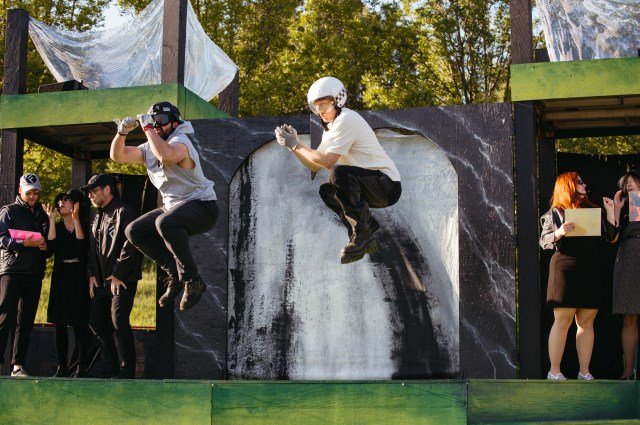



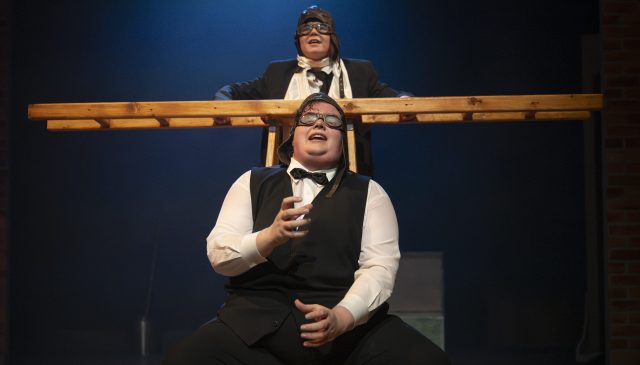


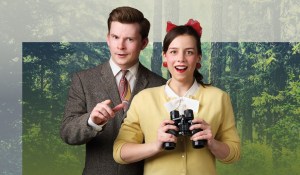

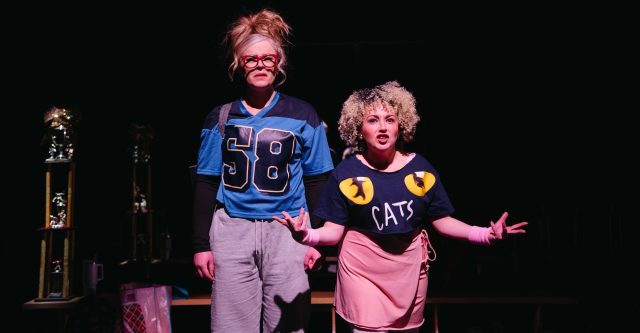

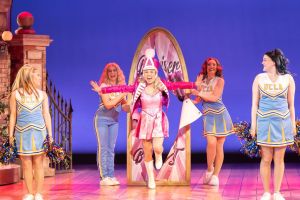







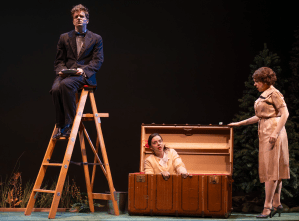






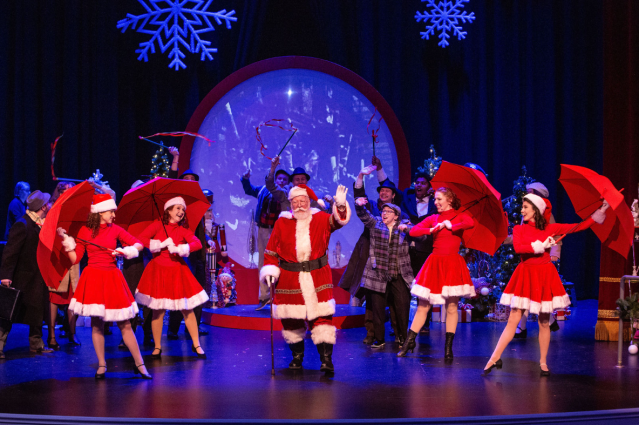
 By Liz Nicholls,
By Liz Nicholls,  •Tonight through Saturday at the Varscona, in Nutcracker Burlesque you can have the fun of seeing a chestnut cracked by a new nutcracker. House of Hush reimagines The Nutcracker through the plume-framed lens of burlesque, in a script devised by Nikki Hulowski, who co-hosts the extravaganza with Rusty Strutz. Scarlett von Bomb choreographs the nine-member cast. Tickets:
•Tonight through Saturday at the Varscona, in Nutcracker Burlesque you can have the fun of seeing a chestnut cracked by a new nutcracker. House of Hush reimagines The Nutcracker through the plume-framed lens of burlesque, in a script devised by Nikki Hulowski, who co-hosts the extravaganza with Rusty Strutz. Scarlett von Bomb choreographs the nine-member cast. Tickets: 